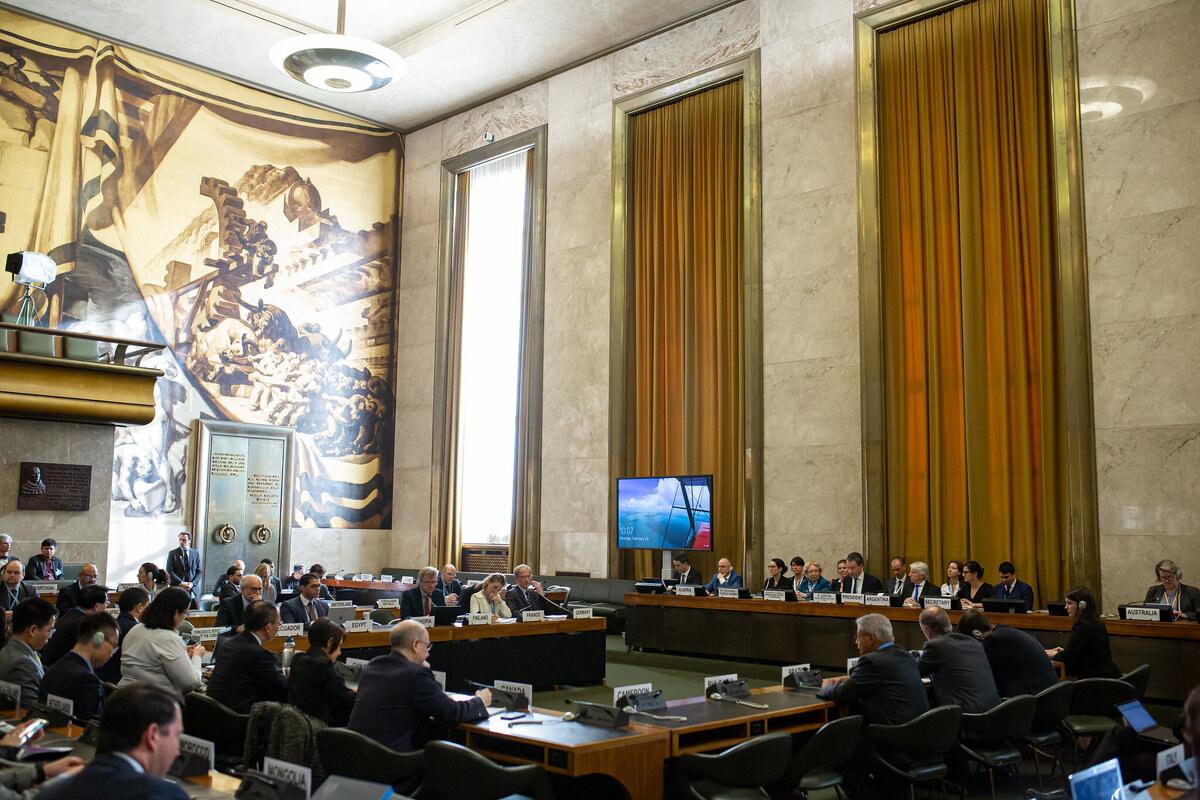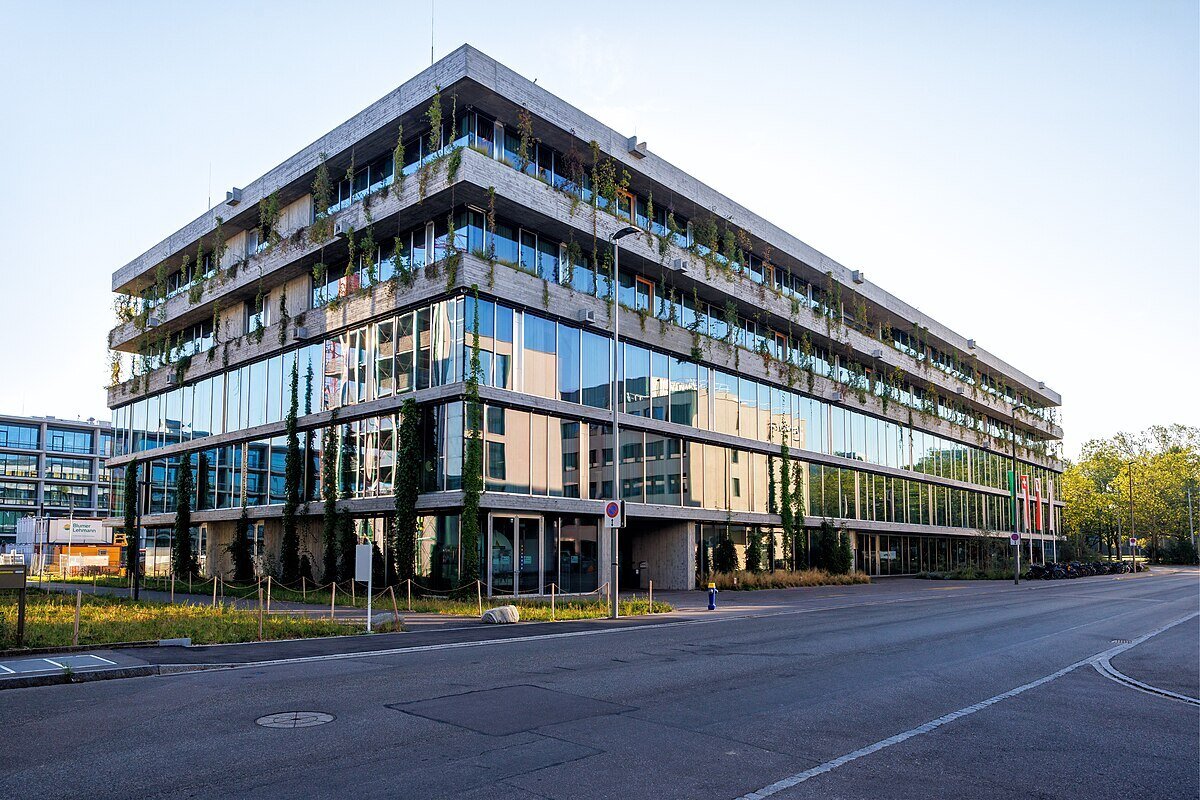- Echanges et mise en réseau
- Connaissance et apprentissage
- Plaidoyer
- Nos thèmes
De Dr. Eva Herzog
As governments' commitment to global health is under increased political and financial pressure worldwide, it is important to focus on the strengths of research, partnership-based cooperation between a wide range of stakeholders and health system strengthening. Switzerland would be predestined to position itself internationally and strategically in this area, says Eva Herzog, President of the Council of States.

The past few years have seen crisis after crisis. The COVID-19 pandemic, escalating wars in Africa, Europe and the Middle East, the climate crisis, to name but a few. Dealing with these multiple crises is a true challenge and our institutions are being tested. Yet, let me begin this symposium with a healthy dose of optimism.
We have seen unprecedented progress in global health since the turn of the millennium. Partnerships, multilateral cooperation, global financial investments and scientific advances have made it possible to improve the health of people around the world. It is also worth recalling a major achievement of the United Nations almost a decade ago: The adoption of the 2030 Agenda for Sustainable Development.
The good news is that when governments and civil society, politics,
business, and science unite and act together, it is possible to bring
about positive change for humanity. I was able to see this for myself
over the past two years when I have had the opportunity to visit health
cooperation projects in Mozambique, Côte d’Ivoire and Tanzania. Projects
that are deeply rooted in partnership and in which Swiss TPH – our host
today – has played a decisive role.
As representatives of the health sciences, the private sector, politics and civil society, we should remember precisely these successes when we discuss improving access to diagnostics, drugs and vaccines here today. And, we should remember the key factors behind this success: the strategic vision, the willingness of different actors to work together, the courage to invest financially, and the perseverance to make scientific innovation accessible for people in low- and middle-income countries (LMIC).
The good news is that when governments and civil society, politics, business, and science unite and act together, it is possible to bring about positive change for humanity.

As I reflect on Switzerland's role in strengthening global health, I do
so from the perspective of a politician with strong roots in this
region, where we are today. Basel is indeed a unique place with an
unprecedented density of organisations in life sciences, biotechnology,
research and innovation.
I am also sharing my reflections at the beginning of an important year, in which the Swiss Parliament will decide on the financial framework for international cooperation, as well as for education, research and innovation for the period 2025 to 2028. It will also be a year that will test the global community’s willingness to work more closely together.
Against this background, it is important that we speak out on what I am sure we can all agree on in this room:
Switzerland is predestined to assume this responsibility in the field of global health. Thanks to its health expertise and the scientific community, thanks to the pharmaceutical industry particularly here in Basel, thanks to our innovation sector and strong civil society, but also thanks to the international organisations based in Geneva. In the wake of the COVID-19 pandemic, the importance of this cumulative national expertise has also become clear to the Federal Council and the Parliament. Both chambers have adopted a motion to prioritise health in the forthcoming strategy for international cooperation.
The Federal Council's consultation proposal, which will be submitted to Parliament this year together with the financial framework for the years 2025-2028, is aimed in precisely this direction.
Switzerland is predestined to assume this responsibility in the field of global health. Thanks to its health expertise and the scientific community, thanks to the pharmaceutical industry particularly here in Basel, thanks to our innovation sector and strong civil society, but also thanks to the international organisations based in Geneva.

Such a framework would create excellent conditions for Switzerland to become more involved in global health. What stands in the way, however, is the heavy pressure on the federal budget. The budget foreseen for the implementation of the dispatch in the consultation version amounts to 11.45 billion Swiss francs. This compares to the amount in the current budget period. However, by proposing that 1.5 billion Swiss francs for aid to Ukraine be channelled through this budget, the Federal Council is in fact reallocating resources at the expense of the Global South. As the Federal Council paints bleak financial scenarios for Switzerland's future, further financial cuts are possible, particularly in the area of international cooperation. Even though Switzerland is still on a very solid financial footing, the current political pressure is real.
As you know, other countries are facing similar cost pressures. In view of the financial gaps following the COVID-19 aid programmes and the various global crises, several donor countries have reduced their financial resources for international cooperation, in some cases massively. The so-called shrinking fiscal space is on everyone's lips at international conferences and could also have a negative impact on global health in particular. The Global Fund and Gavi, as well as the World Health Organisation, will soon be looking for financial resources and, unfortunately, the outlook is not very optimistic that they will be able to maintain, let alone increase, their current financial resources.
However, by proposing that 1.5 billion Swiss francs for aid to Ukraine be channelled through this budget, the Federal Council is in fact reallocating resources at the expense of the Global South. As the Federal Council paints bleak financial scenarios for Switzerland's future, further financial cuts are possible, particularly in the area of international cooperation.
Switzerland should continue to strengthen its role in the international health organisations by pursuing coherent, clear strategic goals – and thus achieve greater effectiveness and visibility in global health. It can certainly build on the Federal Council's foreign health policy, but should further sharpen the objectives derived from it. I am thinking in particular of three main objectives:

A strategically positioned Swiss global health policy should be more ambitious than before. Switzerland can and should present itself internationally as a forward-looking, coherent and trustworthy actor in global health.
A strategically positioned Swiss global health policy should be more ambitious than before. Switzerland can and should present itself internationally as a forward-looking, coherent and trustworthy actor in global health. It should base itself on fundamental principles such as human rights and gender equality. Access to healthcare can only be achieved without discrimination.
Such a clearly defined strategic role for our country in global health will not least benefit Switzerland itself: Switzerland has a strong presence with international organisations – the “Genève-internationale” –, with our pharmaceutical industry, with research and innovation, and with non-governmental organisations involved in global health.
Eventually, this will help protect the health of the Swiss population: strong health systems worldwide and a functioning global health architecture are the best prerequisites for preventing and combating future pandemics and health crises. However, we should not be primarily guided by our own interest: Switzerland's commitment must ultimately be based on the idea of solidarity.
Let us therefore work together, with our partners in low- and middle-income countries, to strengthen access to healthcare around the globe.
Coherence, coherence and more coherence. There are still various inconsistencies between the government's foreign policy and its foreign trade, development and health policies. We will always have to live with inconsistencies - but the pursuit of strategic coherence is key.
The text for this med in CH is based on the opening speech given by Eva Herzog, President of the Council of States, at the Swiss TPH Symposium "Improving Access to Healthcare in LMICs" on 8 February 2024.